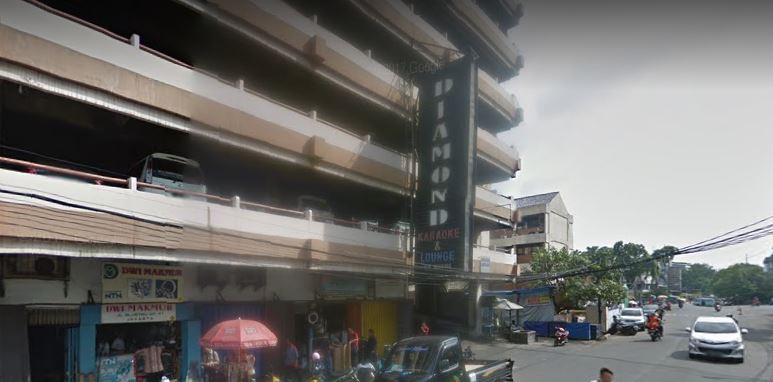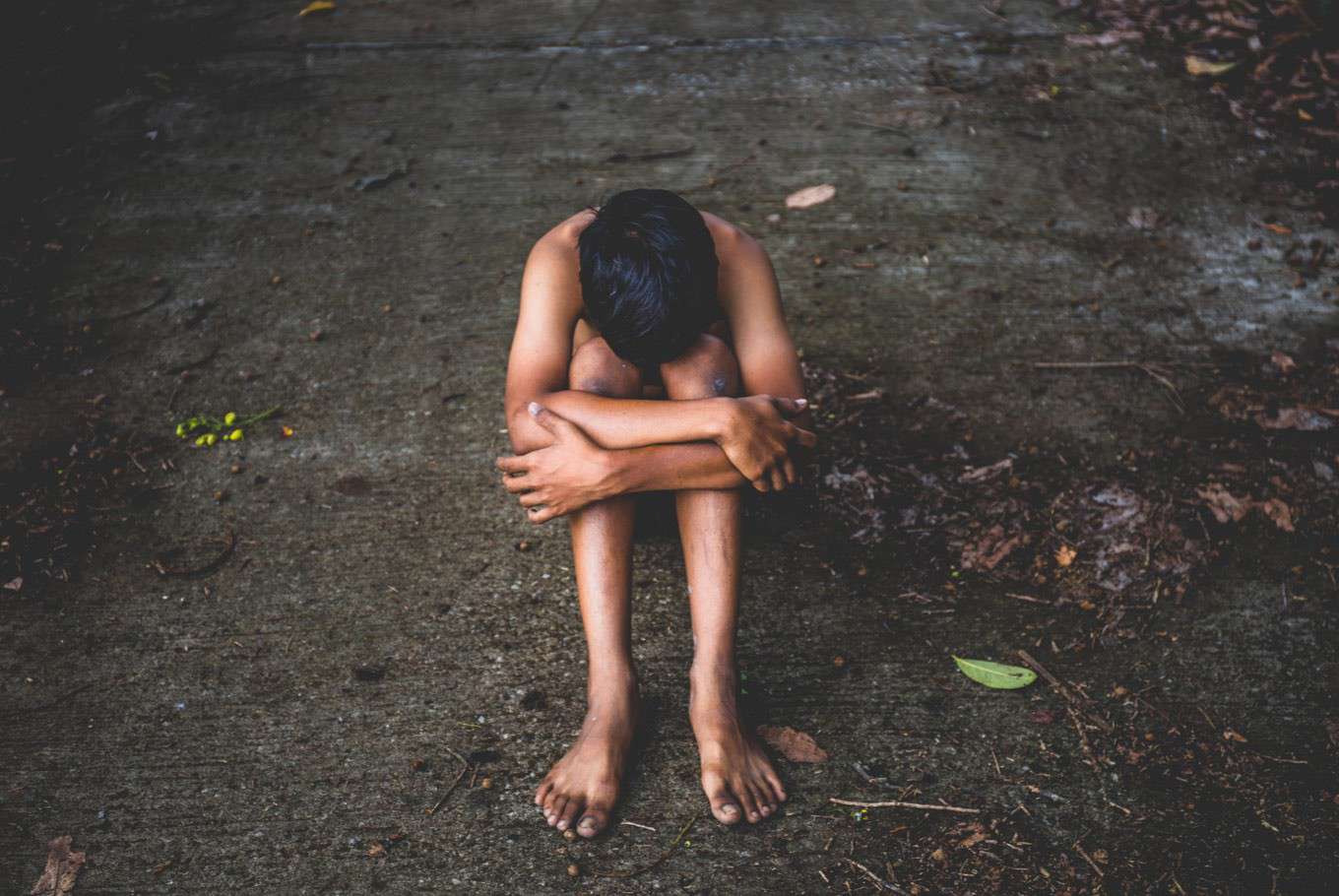
 |
|
#1036
|
||||
|
||||
|
Re: Indonesia TCSS, Exchange Rate, Favourite Song/Music update
Woman, 7-months pregnant, arrested for soliciting herself and friend for threesome, says she needed money for hospital fees
 Last week’s big news in Jakarta was the closure of the Alexis Hotel, which recently inaugurated Governor Anies Baswedan said was just the beginning of a moral crusade to eradicate prostitution in the capital. The mayor of Surabaya, Tri Rismaharini, has been on a similar crusade during her years in office. Her decision to close Dolly, once Indonesia’s biggest red-light district, in 2014 was hailed by many in the East Java capital as a moral victory, but many women’s rights advocates and public health experts say that it mainly succeeded in driving desperate sex workers further underground into more dangerous work. It’s important context to understand the story of a woman who was arrested in Surabaya last week for allegedly prostituting herself and a friend through social media. Police say they arrested the 27-year-old, identified by her initials FWS, last Monday while she and her friend were with a customer in a hotel room. “The suspect was arrested on October 30, 2017. She was arrested because she offered a threesome sex service. When she was arrested, the victim, as well as the suspect, were naked, serving a guest in room number 302 in a hotel in South Surabaya,” said Lily Djafa, head of public relations for the Surabaya Police, at a press conference last Thursday as quoted by Liputan 6. The act of prostitution is actually in and of itself not illegal in Indonesia, but since FWS offered her friend’s services as well through her Facebook account, she was charged under the 2007 Human Trafficking Law, as well as under articles of the country’s Criminal Code covering coercion of others into lewd acts and profiting from a woman having sex. Under the Human Trafficking Law, she could face up a maximum penalty of 15 years in jail. According to police, FWS had offered up the services of herself and her friend for IDR700,000 (US$50) for two hours. She was supposed to have received IDR300,000 while her friend was to receive IDR400,000 (and yet despite making less money FWS is being charged with exploiting her friend). Of course, the saddest aspect of the case is that FWS is 7 months pregnant. She told police and the media that the money was supposed to cover the costs of her labor at the hospital. “I am seven months pregnant, but (when I was arrested) my husband did not know that I was working, I did this because our economic needs are very urgent,” she said at the press conference while wearing a white mask to help protect her identity. While the costs of childbirth at a hospital should theoretically be covered by Indonesia’s national health insurance program (BPJS), in reality many people don’t know about the program or aren’t signed up for it and many hospitals have been known not to accept it despite being required to. For example, one woman with labor complications tragically saw her baby die after she was refused care by seven hospitals in Bekasi despite being enrolled in BPJS. The crusade against prostitution is supposed to be about helping to protect vulnerable women. And yet here it seems we have is a case in which a woman who was desperate to make money to help her baby will likely face jail time for trying to help her friend earn money as well. Now her life and her child’s life are likely ruined. Some moral victory. |
|
#1037
|
||||
|
||||
|
Dolly Revisited: The brothels are gone but the sex trade lives on
Dolly Revisited: The brothels are gone but the sex trade lives on
 The end of Dolly’s glory days Dolly was nothing like how we pictured it to be. Before its shutdown, people used to say that the Surabayan red-light district was a beacon of sexual liberation in Indonesia, the country with the largest Muslim population in the world. Ask anyone who visited Dolly in its heyday, and they’ll tell you about the red light district’s raucous and debaucherous atmosphere. Dolly, which is comprised of one main lane that stems into countless other lanes, used to be jam-packed every night with head-pumping disco and dangdut music blaring from every corner. The prostitutes were conspicuously displayed in their brothels like mannequins in storefront windows as far as the eye could see. Anyone could venture into Dolly for its sexual services without having to worry about being judged. But Dolly, once Southeast Asia’s largest red-light district, is now a ghost town. The Surabaya city government officially shut down sexual practices in Dolly on June 18, 2014. Surabaya Mayor Tri Rismaharini, who was recently named one of the Best Mayors in the World for “energetically promoting her social, economic and environmental policies in Indonesia’s second-largest city,” was the main force behind Dolly’s closure. Around 1,500 sex workers were evicted from Dolly Lane and the adjacent Jarak Street. Critics said that the shutdown would only drive Dolly’s evicted sex workers underground, bringing about new problems regarding the safety and sexual health of both the prostitutes and their clients. These issues, along with other political and social implications of such an abrupt shutdown, still linger today.  We visited Surabaya five months after Dolly’s official shutdown. There, we met with three prostitutes with very distinct backgrounds, and learned about how their lives were affected in the time since Dolly ceased to be the debauchery capital of Southeast Asia. Transforming Dolly It is during the day that the positive effects of the shutdown become apparent. Kids are now out playing in the open on Dolly Lane. Their parents no longer have to worry about the negative influence of the sex trade going on around them. There were a surprising number of kids in the neighborhood, and one can only wonder how they would have been influenced by the thriving brothels of Dolly’s yesteryears. Saving children from the effects of prostitution (and from prostitution itself) is one of the main reasons Surabaya’s Mayor Risma was so adamant about shutting Dolly down. But the fates of the local adults who depended on Dolly’s sex industry hangs in the balance. Critics argued that the brothel complex’s closure would devastate the local economy and lead to hostile resistance – not just from sex workers, but also from residents in neighborhoods near Dolly. Surabaya’s Deputy Mayor, Wisnu Sakti Buana, who grew up in a neighborhood next to Dolly, argued that its shutdown has broader implications on the lives of people who weren’t directly involved in the sex industry. He opposed his superior’s plan to shut down Dolly for this exact reason. “The shutdown was rushed. If the shutdown happens suddenly, what happens to the locals there who are also citizens of Surabaya?” Wisnu said. “We were thinking about their fates from the beginning. Not the prostitutes, not the pimps. Most of them aren’t from Surabaya anyway. But [this is about] the citizens of Surabaya who make a living in the area, such as clothing designers, laundry owners and parking attendants.” Now that Dolly has become a ghost town , Wisnu said that people in the neighborhood can no longer rely on tourists for income. The government was so keen to rid Dolly of prostitution that they neglected to consider the economic needs of the locals.  “The reality is that the government only gave financial compensation of Rp 5 million (around US$ 400) each to prostitutes and pimps [to leave Dolly]. The thousands of other citizens affected by the shutdown didn’t get compensated. Why did it end up like this? How did this happen?” he said. For all its worth, the city government is slowly trying to transform Dolly into a thriving industrial area. When we were there, Dolly had been officially shut down for five months, but only one brothel had been renovated into a working factory. They named it the Micro, Small and Medium Enterprises Center. It is effectively a small factory that produces whatever is being demanded of them. At the time, the workers there were producing cheap Indonesian soccer cleats. It soon became apparent that there were no former prostitutes being trained and working in this small factory. These new opportunities were only being presented to those who lived in and around Dolly, i.e. locals with official documentation and Surabaya ID cards. But this was just one small factory that only employed around 100 workers. It may be a start, but it’s not nearly enough to provide for the thousands of other locals who depended on Dolly. “In reality sex workers and pimps made up only 10% of the number of people who made a living here in Dolly. The other 14,000 people, they still haven’t been dealt with,” said Anis Sadah, a human rights activist who opposed Dolly’s shutdown. “And up to this moment, this matter hasn’t been touched on, [not even by] human rights institutions.” The girls Anis, who wears a hijab, also worries about the sex workers. She believes that the problem of prostitution is a humanitarian issue, not a religious or political matter. Even after receiving Rp 5 million compensation from the government, many prostitutes, like the girls we interviewed, still had no choice but to keep working in the sex industry. Only now, working in the sex industry in Surabaya presents greater dangers than ever before. For example. sex workers in Dolly used to receive monthly HIV and STD checks from the city health department. Brothels also generally enforced the government’s “100% condom use” approach to HIV prevention among sex workers. But girls working in Surabaya’s new underground sex trade often report feeling too afraid to force their clients to use condoms. “Prostitution exists even without anyone protecting it. It’s always there. But this is about how we give the people involved, especially the women, a sense of security,” Anis said. “They must feel that there’s security for them, that there’s social and health insurance for them. And once they can no longer work here, they can survive on their own. They have to be educated for that. “Without that education and awareness, there will always be prostitutes coming in and going [out of Dolly].” The future looks uncertain for Dolly. Opposing forces of industrialization and prostitution are locked in a game of tug o’ war to determine the area’s future. With the government not yet prepared to make major investments for the sake of the people, Dolly and its locals may well be the ones who lose out in the end. Dolly, then, must take on a new purpose before it becomes nothing but a cautionary tale. |
|
#1038
|
||||
|
||||
|
Re: Indonesia TCSS, Exchange Rate, Favourite Song/Music update
Cassandra Band - Cinta Terbaik (Official Video)
__________________
 ONE MAN'S MEAT IS ANOTHER'S POISON "A FR is to give reader an idea of what to expect, the pics and style of writing are to spice things up, to give more space for imagination, most important thing is we share and we enjoy." Bros with rep power are welcome to exchange 162 points daily |
|
#1039
|
||||
|
||||
|
Re: Indonesia TCSS, Exchange Rate, Favourite Song/Music update
Dancin indo ger photo 2 share share

__________________
Plz dn't quote photos posted by another person inside Balai tread Click here 2 learn hw 2 quote-lock photograph so others cannot quote em The different types of kkj massage cuntpilation My Massage List near Nagoya Hill Mall |
|
#1040
|
||||
|
||||
|
Indonesia threatens to block WhatsApp over sexual content
Indonesia threatens to block WhatsApp over sexual content
 Indonesian authorities say they will block access to the popular WhatsApp instant messaging app if it doesn't remove sexually explicit content. The Ministry of Communications and Information Technology said Tuesday on its website that it has already asked internet companies to block domain names used by Tenor, which provides animated image files known as GIFs through WhatsApp. The government has sent three notices to WhatsApp, which is owned by Facebook and widely used in Indonesia, asking it to remove pornographic content and will block the app if there's no response by Wednesday, ministry official Semuel Abrijani Pangerapan said at a news conference on Monday. Indonesia blocked web versions of the messaging app Telegram in July because it included chat groups for Islamic State group supporters. It lifted the partial ban after Telegram co-founder Pavel Durov visited Indonesia in August and agreed on efforts to remove radical content. Facebook's Asia spokeswoman Charlene Chian said that WhatsApp lets users search for GIFs using third-party providers and that WhatsApp can't monitor their content because communications on the app are encrypted. "We've directed the Indonesia government to work with these third-party providers to review their content," she said. Indonesia, the world's most populous Muslim nation, has strict anti-pornography laws and authorities are increasingly seeking to censor online content they deem to be offensive or a threat to national unity. |
|
#1041
|
||||
|
||||
|
Re: Indonesia TCSS, Exchange Rate, Favourite Song/Music update
Juicy Luicy - Aku Cinta Dia Yang Cinta Pacarnya (Official Video)
__________________
 ONE MAN'S MEAT IS ANOTHER'S POISON "A FR is to give reader an idea of what to expect, the pics and style of writing are to spice things up, to give more space for imagination, most important thing is we share and we enjoy." Bros with rep power are welcome to exchange 162 points daily |
|
#1042
|
||||
|
||||
|
There are more than 500,000 drug users in Jakarta: Governor Anies Baswedan
 In addition to his proclaimed moral crusade against prostitution (starting with the closure of the infamous Alexis Hotel), recently inaugurated Jakarta Governor Anies Baswedan has also said he would take a hardline stance against drugs and would shut down any nightclubs where narcotics were found to be used. Which is why he has decided to shut down Diamond, a nightclub (or as they’re still referred to by the local media, discotheque) in West Jakarta that was temporarily shut after a Golkar politician and two other men were found with crystal meth during a police raid pending the results of their investigation. Regulations give the government the right to shut down any establishment where narcotics have been found more than once and although police concluded the drugs came from outside the club, Anies decided to shut it down permanently anyways. The new governor said it was essential to take a zero-tolerance approach against drugs because of the large and growing number of users in the capital. “So it is estimated that more than 500,000 people are now drug users, 40% percent are employees, 20% are students, this is information from the head of the Jakarta branch of the National Narcotics Agency (BNNP DKI),” Anies said at City Hall today as quoted by Antara. With the population of Metro Jakarta estimated to be about 10 million, that would mean the government believes around 1 in 20 people living in Jakarta is a drug user. The new governor went on to say that the Chairman of the Indonesian Child Protection Commission (KPAI) mentioned that, in the last three years, the number of child drug traffickers increased by 300% and that the number of drug cases increased from 12,929 in 2014 to 17,300 in 2016. The 500,000 user statistic from BNNP DKI comes from May of last year, but we could find no explanation for the agency’s methodology for coming up with that number. In the past, the government has been found to have used grossly unscientific surveys to estimate that 50 people per day are killed by drugs in Indonesia, a statistic often invoked by officials as a justification for the use of the death penalty for drug dealers. Of course, the government’s attempts to increase public panic over narcotics with ever increasing numbers are at odds with their other stated justification for the death penalty, which is that it acts as a deterrent for future drug crimes. |
|
#1043
|
||||
|
||||
|
Re: Indonesia TCSS, Exchange Rate, Favourite Song/Music update
this below i tink is good lei...jus share share the veri good 1s....
   
__________________
Plz dn't quote photos posted by another person inside Balai tread Click here 2 learn hw 2 quote-lock photograph so others cannot quote em The different types of kkj massage cuntpilation My Massage List near Nagoya Hill Mall |
|
#1044
|
||||
|
||||
|
Re: Indonesia TCSS, Exchange Rate, Favourite Song/Music update
Photos 2 share share...
 
__________________
Plz dn't quote photos posted by another person inside Balai tread Click here 2 learn hw 2 quote-lock photograph so others cannot quote em The different types of kkj massage cuntpilation My Massage List near Nagoya Hill Mall |
|
#1045
|
||||
|
||||
|
Videos allegedly show Taman Safari visitors spitting booze into hippo’s mouth
... and tricking deer into drinking.
 It’s bad enough that animals in zoos don’t get to live in their natural habitats, but some animals in Indonesia’s famous Taman Safari zoo in Cisarua, West Java, had to put up with what appears to have been the drunken shenanigans of a few of the zoo’s visitors. Yesterday, several videos that were originally posted by two Instagram accounts using the platform’s Stories feature were reuploaded by news aggregator account @ndorobeii. The videos show several instances of alleged animal abuse by a group of friends as they were driving through Taman Safari’s animal enclosures. The first clip shows one man spitting what appears to be Orang Tua, a type of Indonesian red wine, from inside the car directly into the mouth of a hippo, resulting in the uncontrollable laughter of his friends in the car. The next two clips show the friends dangling a carrot to lure a deer to get close to their car before pouring the drink into the unsuspecting animal’s mouth, causing it to flee. They also seemingly tried to trick a zebra as well in the next clip, but whether they succeeded or not is not shown. The clips inevitably caused outrage and went viral in Indonesia. Both Instagram accounts are inaccessible as of the time of writing, but one of them posted an apology asking the public’s forgiveness for her and her friends’ stupidity, as relayed by @ndorobeii That said, Taman Safari says they are taking legal steps against the group for allegedly abusing their animals. “TSI (Taman Safari Indonesia) is taking the legal step of reporting the incident to the relevant authorities and they are continuously coordinating with our legal department. We are disappointed, angered and struck by the stupid actions (of the people in the videos),” wrote Taman Safari Indonesia representative Yulius H. Suprihardo in a press release, as picked up by Kumparan today. “On the one hand, Taman Safari Indonesia, as an ex-situ conservation body, has been working it’s hardest to take care of and preserve animals that were given to us by the state. On the other there are those who deliberately hurt the animals with disgraceful actions.” |
|
#1046
|
||||
|
||||
|
Re: Indonesia TCSS, Exchange Rate, Favourite Song/Music update
Ungu ft. Iis Dahlia - Hampa Hatiku (Super HQ Audio/Video)
__________________
 ONE MAN'S MEAT IS ANOTHER'S POISON "A FR is to give reader an idea of what to expect, the pics and style of writing are to spice things up, to give more space for imagination, most important thing is we share and we enjoy." Bros with rep power are welcome to exchange 162 points daily |
|
#1047
|
||||
|
||||
|
Re: Indonesia TCSS, Exchange Rate, Favourite Song/Music update
Photos i share 4 fun!!
 
__________________
Plz dn't quote photos posted by another person inside Balai tread Click here 2 learn hw 2 quote-lock photograph so others cannot quote em The different types of kkj massage cuntpilation My Massage List near Nagoya Hill Mall |
|
#1048
|
||||
|
||||
|
Around 30,000 people die in traffic accidents in Indonesia per year: Police
 Driver discipline and road safety is obviously a big problem in Indonesia, but just how bad is it? According to National Traffic Police Chief Royke Lumowa, road accidents are a serious epidemic that kills tens of thousands each year. Based on data from the Traffic Police Corps, Royke said the death toll from traffic accidents reached about 30,000 thousand per year. That number, he added, is far greater than the combined number of deaths due to crime or acts of terrorism. “Think of the approximately 28,000 to 30,000 people who die on the road per year because of accidents. Compared to terrorism and crime (the difference) is huge,” Royke said at the sidelines of the ASEAN Traffic Police Forum at Hotel Borobudur in Central Jakarta today as quoted by Detik. Royke said the issue of traffic accidents didn’t often get major attention in Indonesia because they happened regularly but generally with a low number of casualties per incident. But put together, the number is staggering. The national traffic police chief said that high-speed impacts were the main factor in fatal traffic accidents, and said that police needed to focus on better-enforcing traffic rules, especially speed limits. Royke said Indonesia had a long way to be compared to countries like Singapore, which have low traffic fatality rates and are able to regulate traffic largely through the use of technology like speed cameras and electronic toll gates. Indeed, based on 2013 data from the World Health Organization, Singapore had an accident rate of 3.6 people per 100,000, whereas Indonesia’s rate based on the new police figure would be about 11.5. But at least Indonesia’s overall traffic fatality rate has dropped somewhat since that same 2013 WHO data showed that there were about 38,000 fatal accidents that year. |
|
#1049
|
||||
|
||||
|
Police nab Singaporean man suspected of molesting 3 boys in an art gallery in Batam
 A Singaporean man has been nabbed in Batam, accused of molesting three boys in the Indonesian island 31km away from the city-state. The Jakarta Post reported that the 46-year-old entrepreneur is believed to have sexually assaulted boys aged 12, 15 and 16 in an art gallery where he teaches and resides. The offences were said to have been committed between Sept 16 and 24 in the Nongsa area. It was only when the parents of one of the alleged victims filed a police report that the Singaporean was arrested. The man was also said to have offered the victims money, and that he told investigators that he worked as a freelancer and a driver in Batam. The gallery itself was believed to have been used to lure the alleged victims. Batam police added that he had been living on the island for over three years already, and had overstayed his visa. He’ll face up to 15 years in jail and a 5 billion rupiah (S$500,000) fine should he be convicted. |
|
#1050
|
||||
|
||||
|
Indonesian police and military refuse to end abusive ‘virginity testing’: Human Right
 In 2014 and 2015, Human Rights Watch released disturbing reports on the Indonesian military and police’s use of “virginity testing” on female recruits, an abusive and anachronistic practice that has absolutely no scientific validity. The report sparked an outcry and widespread condemnation, but the police and military both stubbornly defended the practice, saying it was essential to determining the “morality” of their female recruits. A follow-up report by HRW released today, based on information from senior military and police officers, reveals that the practice of virginity testing is still being imposed on female recruits, although they are being euphemistically classified as “psychological” examinations for “mental health and morality reasons.” There have also been attempts to justify the “two-finger test” as a means of determining pregnancy status (which would also have no scientific basis). “The Indonesian government’s continuing tolerance for abusive ‘virginity tests’ by the security forces reflects an appalling lack of political will to protect the rights of Indonesian women,” said Nisha Varia, women’s rights advocacy director at HRW. “These tests are degrading and discriminatory, and they harm women’s equal access to important job opportunities.” In November 2014, the World Health Organization issued guidelines that stated, “There is no place for virginity (or ‘two-finger’) testing; it has no scientific validity.” HRW and other human rights organizations consider the test, meant to determine whether the recruits’ hymens are still intact, is cruel, invasive and a form of gender-based violence. So why hasn’t the government done anything to end it? An Indonesian military doctor told HRW that senior military personnel were well-aware of the arguments against the practice but were unwilling to abolish it without the support of their superiors, with the doctor suggesting it might take a direct order by Indonesian military commander Gen. Gatot Nurmantyo to end to the practice. However, it seems unlikely that the military will end the practice internally. All branches of the armed forces have been using “virginity testing” for decades and, in some circumstances, even the fiancés of military officers have been required to take them. Military officials strongly defended the practice when it came under fire after HRW’s original reports. The top Indonesian military commander at the time, General Moeldoko, brushed off the criticism, saying that virginity testing was essential to assessing the morality of female recruits. “Yes, that is one of the conditions. So what is the problem?” he told reporters as quoted by Tempo. “It is for a good reason, so why should it be criticized?” An Indonesian military spokesman Major General Fuad Basya, also told reporters in 2015 that virginity tests were necessary so that soldiers had the right mentality. “You can imagine, if later a prostitute became a soldier, what would happen to Indonesia’s military,” he told BBC Indonesia. Those misguided and misogynistic views are unfortunately not limited to the police or military. Just this year, a famous Indonesian judge named Binsar Gultom stirred controversy with a book in which he argued that virginity testing for women was necessary to preserve the “purity of marriage”. With change unlikely to come from within the military or police for, HRW has advised President Joko “Jokowi” Widodo to order top police and military commanders to immediately ban “virginity tests”, especially in light of the International Day for the Elimination of Violence against Women on November 25. “Indonesian women who seek to serve their country by joining the security forces shouldn’t have to subject themselves to an abusive and discriminatory ‘virginity test’ to do so,” HRW’s Varia said. “The Indonesian police and military cannot effectively protect all Indonesians, women and men, so long as a mindset of discrimination permeates their ranks.” |
| Advert Space Available |
 |
| Bookmarks |
| Tags |
| currency, music, news, tcss |
|
|
 t Similar Threads
t Similar Threads
|
||||
| Thread | Thread Starter | Forum | Replies | Last Post |
| Genuine points exchange thread | ahtecklim | International Field Reports | 25405 | Today 01:59 AM |
| Classical music - which are your favourite pieces? | Sammyboy RSS Feed | Coffee Shop Talk of a non sexual Nature | 0 | 23-10-2014 11:50 PM |
| Classical music - which are your favourite pieces? | Sammyboy RSS Feed | Coffee Shop Talk of a non sexual Nature | 0 | 23-10-2014 11:10 PM |
| Classical music - which are your favourite pieces? | Sammyboy RSS Feed | Coffee Shop Talk of a non sexual Nature | 0 | 23-10-2014 10:10 PM |
| All Time Favourite music which the whole world enjoy ...... | Sammyboy RSS Feed | Coffee Shop Talk of a non sexual Nature | 0 | 17-12-2013 05:40 PM |